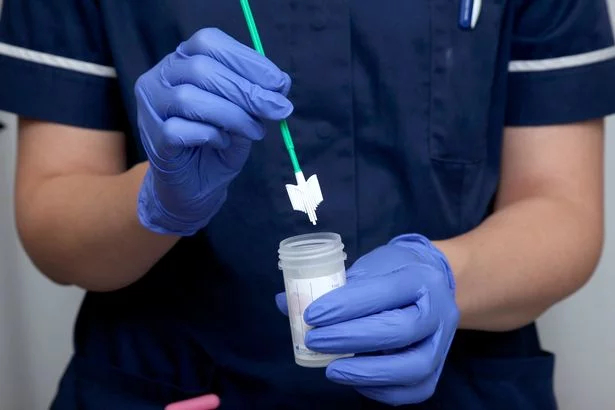A gynaecologist has shared some of the key signs of cervical cancer...CONTINUE READING
Next week is Cervical Screening Awareness Week – an initiative dedicated to raising awareness of the importance of attending regular screening for women’s health.
Ahead of the week of action, a gynaecologist has shared some of the key facts about cervical cancer, including four important signs all women should watch out for.
Cervical screening identifies abnormal changes in the cells of the cervix, such as the presence of high-risk human papilloma virus (HPV) – the main cause of cervical cancer.
These changes often do not cause any symptoms, so regular screening (every 3 to 5 years according to age) helps spot any warning signs before they have the chance to develop into cancer.
For Cervical Screening Awareness Week, intimate wellbeing brand INTIMINA’s in-house gynaecologist, Dr Susanna Unsworth, has shared her tips for making a screening as comfortable as possible:
It is good to understand what the test is for. Cervical screening is not a test for cancer – it is a test designed to pick up changes that can potentially lead to cancer. These changes can be easily treated to prevent cancer from developing at all, hence why it is so important to attend.
Find out who will be performing the test. It can be helpful to know in advance so that you know it is someone you feel comfortable with.
If you are very anxious it may be worth trying to arrange an appointment ahead of your cervical screening test appointment so that you can meet the healthcare professional who will perform the test and ask any questions that you might have.
Consider booking the appointment about a week after your period – this is often when women experience the least amount of discomfort during their cycle.
Cervical screening should not be painful, but everyone has different thresholds at which they experience pain, so consider taking some simple pain-relief medication such as paracetamol or ibuprofen an hour or so beforehand.
You may wish to take someone with you when you attend for your test, particularly if you feel that you might need help or assistance during the appointment.
You might feel more comfortable wearing a skirt or a dress that you can just lift rather than take off completely. This may help you feel less exposed during the test, but you will be provided with a sheet to use as a cover so don’t worry too much about what to wear.

If you want to, ask to see the equipment that will be used to perform the test, so you know what to expect. You can also ask for a smaller speculum to be used if possible, and if you are finding it too uncomfortable during the test you can ask for it to be changed.
Some women feel more comfortable inserting the speculum themselves. Don’t be afraid to ask your professional if you would prefer to do this.
Think about using some relaxation techniques during the test, such as breathing techniques, stress balls, or listening to music through headphones (although not too loud as you still need to be alert to your healthcare professional if needed).
Women in perimenopause and post menopause may experience more discomfort when having cervical screening due to the changes that take place in the vagina and vulval tissues as a consequence of oestrogen hormone levels starting to drop.
The addition of some vaginal oestrogen treatment can be very effective at treating this problem, and a boost of treatment a few weeks before your cervical screening test can make a huge difference and may be worth discussing with your healthcare professional in advance.
If you have experienced sexual trauma in the past, attending for cervical screening can be even more difficult and preparing yourself beforehand can be even more helpful.
You may find it helpful for the test to be performed by someone who already has some prior knowledge of your previous history. Letting your healthcare professional know you are worried or anxious can help them support you better. Don’t be afraid to ask to stop if it gets too much.
Alongside regular screening, it’s important to be aware of the signs and symptoms of Cervical Cancer to look out for to help aid early detection. Dr Unsworth shares four symptoms to keep an eye out for:
1. A change in your normal vaginal bleeding: bleeding that occurs in between your normal periods, after sex, or new bleeding that occurs after your periods have finished (after menopause).
2. Changes to your normal vaginal discharge. If you feel your discharge has changed, such as it has become thicker, change in colour, change in smell or appears blood stained, I would encourage you to see you doctor about this.
3. Painful sex: if you are finding sex is painful, and it is not improving with simple measures such and increasing use of lubrication, I would encourage you to speak to your doctor about it.
4. Other pain: pain in the lower back or pelvis should be checked out if it does not resolve quickly (eg 2-3 weeks), especially if there is no obvious reason for it and it is impacting on your normal daily activities.
Whilst these symptoms do not mean you have cervical cancer, it is important to get them checked out, as they can also be caused by other problems too.









